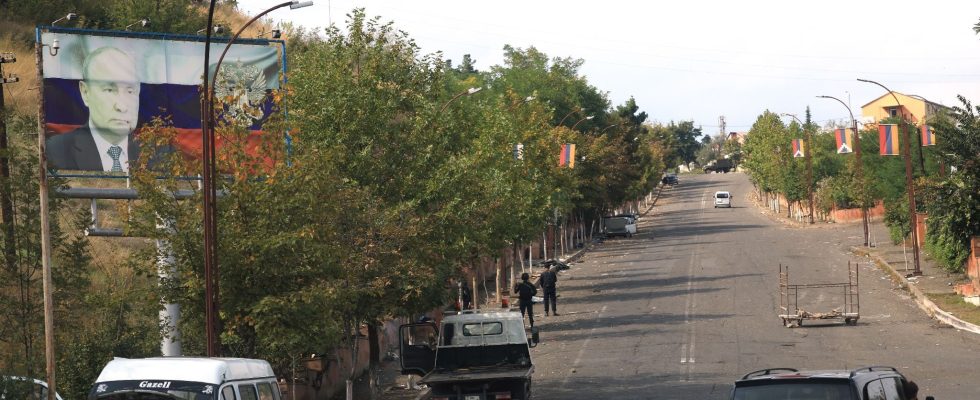The story is well known. In 1921, Commissioner for Nationalities Stalin – the perfect incarnation and combination of cynicism and totalitarianism – divides and conquers; within the nascent Soviet Union, he destroyed the Caucasus (he himself is of Georgian origin) leaving the small mountainous plateau known as Armenian Nagorno-Karabakh (or Artsakh) within the administrative borders of an autonomous republic of ‘Azerbaijan.
At the fall of the USSR, between 1988 and 1991, subjected to bullying by second-class citizens, the Armenians of Karabakh demanded their attachment to the neighboring Republic of Armenia and proclaimed their independence, while thousands of their fellow citizens join, fleeing the pogroms of Baku and Sumgait. The 1991-1994 war between the Armenian and Azerbaijani forces, extremely deadly, ended in an Armenian victory with the energy of despair; for many Armenians in the Caucasus and the diaspora, a defeat would possibly have meant a new genocide after that of 1915 perpetrated by the Ottoman government of the Young Turks.
From incomplete talks to aborted peace proposals, the status quo prevails – for which the political leaders of Yerevan, Baku and Moscow are equally responsible (the Kremlin playing an astonishing duplicity) – until 2020. In September of that year, the Azerbaijani army launched a dazzling military offensive which led, in a few weeks, to the conquest of half of Karabakh and all the surrounding mountainous districts, then the strangulation of the Armenian population by the obstruction of the Lachin corridor, which connects the high plateau to Armenia. Hungry, deprived of heat and electricity, threatened with massacres, the Armenians ended up fleeing in a painful exodus towards the Republic of Armenia.
Ethnic cleansing
Let us be clear: what is negotiable and classic rivalries between rival states is the contested status of Karabakh, the autonomy of minorities, possible border rectifications, security mechanisms; in short, geopolitics as usual. What is neither negotiable nor tolerable is the ethnic cleansing suffered in 2023 by the 130,000 civilians of Karabakh (Armenians living there for millennia!), the illegal occupation of several villages and surrounding areas ( yet in areas that are very officially Armenian in international law), as well as the threats of invasion of the narrow vital Zangezour corridor opening up Armenia via Iran to the south. But there is also another scandal: the continued arbitrary detention in Baku of 23 political and institutional leaders from the late Armenian Karabakh. This is the least known of the cases, but not the most banal: these men – almost all civilians – are detained on several charges, including the fanciful ones of “financing terrorism” or even “illegally crossing the border “. The authoritarian and nationalist Azerbaijani regime considers Karabakh as a seditious and secessionist region, its leaders (described by President Aliyev as “dogs”) must therefore be harshly punished. These men, civilians, risk sentences that are all the heavier as the Baku regime only very occasionally maintains the separation of executive and judicial powers… However, any collective, even in autonomous status, must be able to elect its representatives and social, political and economic leaders. We will also recall that the stigmatization of community leaders and other intellectuals often foreshadows the worst, like the terrible month of April 1915 which marked the outbreak of a genocide otherwise fiercely denied by Baku, and which we would find by following the beginnings of the Shoah, the mass killings of the Khmer Rouge and the genocide of the Rwandan Tutsi…
With the unwavering support of Turkey (considered by Baku as the other part of the same nation) but also its new informal status as a gas hub to Europe, Azerbaijan seems to believe it can act with impunity. The European Union, because Armenia is an authentic democracy and since the Caucasus falls within its proximity zone, must imperatively react with force and vigor; it’s about his values, and, consequently, his interests.
PS: We will benefit from reading the excellent work by my colleague at Sciences-Po Paris Gaïdz Minassian, Armenia and Azerbaijan, a war without end?, published these days by Passés compounds.
* Frédéric Encel is a columnist at L’Express, author of a doctoral thesis on Jerusalem, published under the title Geopolitics of Jerusalem (Flammarion, 2009).
.
